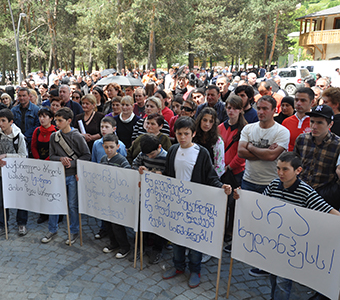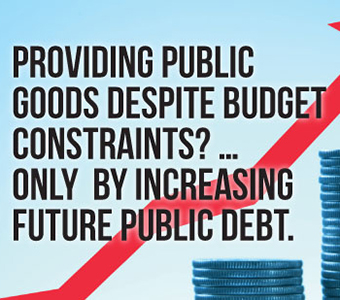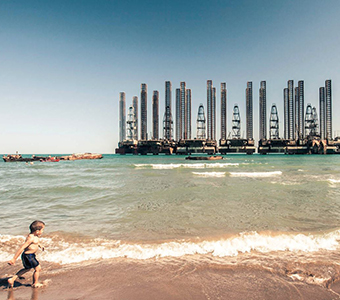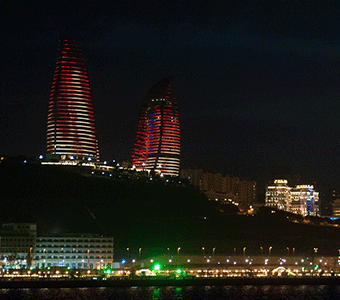Tensions are rising over hydropower and the lack of participation in Georgia’s mountains
Blog entry | 15 March, 2016The mistrust and frustration of communities in the mountains of north-western Georgia is deepening over make-shift consultations on large dam constructions.
Read moreUnited Nations report highlights risks and failures of public-private partnerships
Blog entry | 14 March, 2016A United Nations study finds that public-private partnerships involve substantial risks for the public sector and have often failed to yield ‘value for money’.
Read moreGuest post: Walking the line
Blog entry | 8 March, 2016Plans for the Southern Gas Corridor / Euro-Caspian Mega Pipeline will solidify the west’s dependence on fossil fuels and authoritarian regimes. A new web documentary shows why we should stop and think.
Read morePutting energy efficiency first. Reframing the European Investment Bank’s action in times of transition and uncertainty
Publication | 7 March, 2016The study shows how the European Investment Bank (EIB) has valid reasons to start embracing the energy efficiency first principle and implement it in its lending decision: significant energy savings will be needed regardless of the climate mitigation route taken and to enable the proper roll out of its climate strategy and lead the energy transition. The study looks at how the EIB can do this through its lending policies and financial decisions.
Read moreDo not fund Southern Gas Corridor with EU money
Blog entry | 1 March, 2016The flashbulbs at Azerbaijan’s official photo opportunities should not blind Europe’s leaders to the country’s accelerated descent into authoritarianism, writes Xavier Sol.
Read moreBriefing on Nenskra hydropower plant for the European Investment Bank
Publication | 25 February, 2016The European Investment Bank (EIB) is in the early stage of assessing a loan for the 280 megawatt Nenskra hydropower plant, located on the Nenskra and Nakra rivers in the Caucasus mountain valleys inhabited by ethnic Svans. The poor quality assessment of the project, together with the neglect of the opinion of locals, threatens to aggravate the fading public acceptance of hydropower. With this project, the EIB and other potential international financiers have a chance to insist on changes to the imprudent course hydropower developments have taken in Georgia and to request tighter environmental and social regulations.
Read moreComplaint: non-compliance of the European Investment Bank’s Transparency Policy with EU and international law
Publication | 16 February, 2016This complaint, filed by Bankwatch, Client Earth and Counter Balance with the European Investment Bank’s complaint mechanism, addresses non-compliance of the European Investment Bank’s Transparency Policy with EU and international law on access to information.
Read moreEFSI case study: Integrated clean energy project ‘third industrial revolution’ in Nord-Pas-de-Calais
Publication | 12 February, 2016The so-called European Fund for Strategic Investment (EFSI) should unlock additional investment of at least EUR 315 bn over a three year period (2015-2018). One of the projects benefiting from the loans is the intended “third industrial revolution” in Nord-Pas-de-Calais, France, which incorporates numerous smaller projects all working for the same goal: A zero carbon energy system for the entire region. The particular financing mix could potentially serve as a good example for an investment platform under EFSI.
Read moreEuropean Fund for Strategic Investments: How to ensure sustainability, good governance and added-value
Publication | 31 January, 2016The European Fund for Strategic Investments (EFSI) aims to leverage through the European Investment Bank (EIB) financing for a total of EUR 315 billion in new projects by 2018. The guarantee fund should target projects with a higher risk profile than normal EIB investments and should as well increase lending for investments which significantly contribute to achieving European common policy objectives (“European added-value”). This briefing outlines necessary improvements in the EFSI implementation to realise these aims.
Read moreNGOs urge the European Investment Bank not to finance the Southern Gas Corridor
Press release | 28 January, 2016A group of 27 NGOs sent an open letter to the President of the European Investment Bank (EIB) today urging the Bank not to finance the Southern Gas Corridor, a 3500 kilometres-long chain of gas pipelines from Azerbaijan to Europe.
Read more



